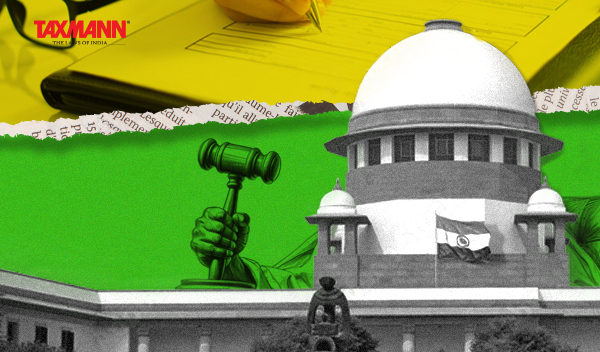IBC Moratorium Can’t Be a Shield Against Sec. 138 NI Act; Debtors Can’t Escape Prosecution During CIRP | SC
- Blog|News|Insolvency and Bankruptcy Code|
- 2 Min Read
- By Taxmann
- |
- Last Updated on 10 April, 2025

Case Details: Rakesh Bhanot v. Gurdas Agro (P.) Ltd. - [2025] 173 taxmann.com 249 (SC)
Judiciary and Counsel Details
- J.B. Pardiwala & R. Mahadevan, JJ.
Facts of the Case
In the instant case, the Respondent filed a complaint under section 138 of the Negotiable Instruments Act, 1881, against the appellants for dishonouring cheques due to insufficient funds.
During the pendency of the aforesaid proceedings, appellants filed an application under section 94 of the IBC before the NCLT for personal insolvency. However, the said application was pending adjudication. Pending said proceedings, appellants moved an application before the Trial Court for adjourning section 138 of the Act proceedings sine die, in view of the pendency of the section 94 petition as well as the injunctive provision as envisaged under section 96 of the IBC.
The The Trial Court rejected the aforesaid application. Aggrieved by this, the accused approached the High Court by filing a criminal petition under section 482 of the CrPC. The High Court, by the impugned order, dismissed the said criminal petition. Thereafter, an appeal was made before the Supreme Court.
It was noted that the interim moratorium under Section 96 and the moratorium under Section 101 of the IBC are designed to offer a breathing space to corporate debtors, allowing them to reorganise their financial affairs without the immediate threat of creditor actions. However, this moratorium is not intended to shield individuals from personal criminal liabilities arising from their actions outside the scope of corporate debt restructuring.
Further, it was noted that the legislative intent behind the IBC is to provide a protective shield for debtors during the insolvency process. The scope and nature of proceedings under the IBC may result in the extinguishment of actual debt by restructuring or through the liquidation process. Still, such extinguishment will not absolve its directors from criminal liability.
Supreme Court Held
The Supreme Court held that allowing debtors to evade prosecution under section 138 of the Act would undermine the very purpose of the Act, which is to preserve the integrity and credibility of commercial transactions and personal responsibility persists, regardless of insolvency proceedings and their outcome.
Thus, the prayer of appellants/petitioners to stay prosecution under section 138 of the Act, relying on an interim moratorium under section 96, could not be entertained.
List of Cases Reviewed
- Order of High Court of Punjab and Haryana, Chandigarh in criminal petition bearing No.CRM-M37169-2022 (O&M), dated 23-03-2023 [ Para 20] affirmed.
- Dilip B. Jiwrajka v. Union of India (2023) SCC OnLine SC 1530) : (2024) 5 SCC 435 [Para 18]; distinguished
List of Cases Referred to
- P.Mohanraj v. Shah Brothers Ispat Pvt. Ltd. (2021) 6 SCC 258 (para 7.1)
- Ajay Kumar Radheyshyam Goenka v. Tourism Finance Corporation of India Ltd. (2023) 10 SCC 545 (para 7.1)
- State Bank of India v. V.Ramakrishnan (2018) 17 SCC 394 (para 7.1)
- Dena Bank v. Bhikhabhai Prabhudas Parekh and Co. & Ors. (2000) 5 SCC 694 (para 7.1)
- Dilip B. Jiwrajka v. Union of India (2024) 5 SCC 435 (para 7.1)
- Ajay Kumar Radheyshyam Goenka v. Tourism Finance Corpn. of India Ltd. (2023) 10 SCC 545 (para 16).
Disclaimer: The content/information published on the website is only for general information of the user and shall not be construed as legal advice. While the Taxmann has exercised reasonable efforts to ensure the veracity of information/content published, Taxmann shall be under no liability in any manner whatsoever for incorrect information, if any.

Taxmann Publications has a dedicated in-house Research & Editorial Team. This team consists of a team of Chartered Accountants, Company Secretaries, and Lawyers. This team works under the guidance and supervision of editor-in-chief Mr Rakesh Bhargava.
The Research and Editorial Team is responsible for developing reliable and accurate content for the readers. The team follows the six-sigma approach to achieve the benchmark of zero error in its publications and research platforms. The team ensures that the following publication guidelines are thoroughly followed while developing the content:
- The statutory material is obtained only from the authorized and reliable sources
- All the latest developments in the judicial and legislative fields are covered
- Prepare the analytical write-ups on current, controversial, and important issues to help the readers to understand the concept and its implications
- Every content published by Taxmann is complete, accurate and lucid
- All evidence-based statements are supported with proper reference to Section, Circular No., Notification No. or citations
- The golden rules of grammar, style and consistency are thoroughly followed
- Font and size that’s easy to read and remain consistent across all imprint and digital publications are applied



 CA | CS | CMA
CA | CS | CMA
